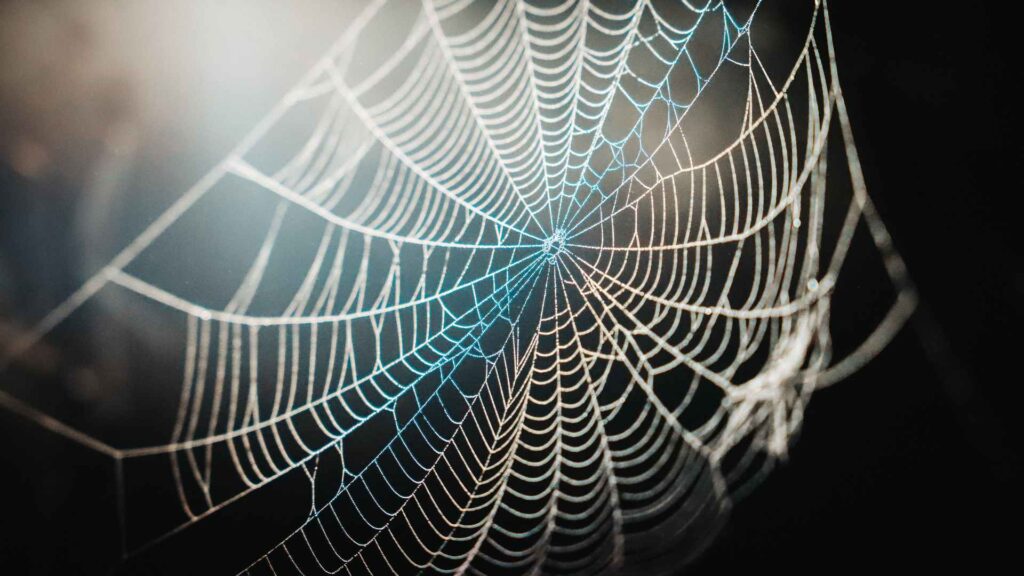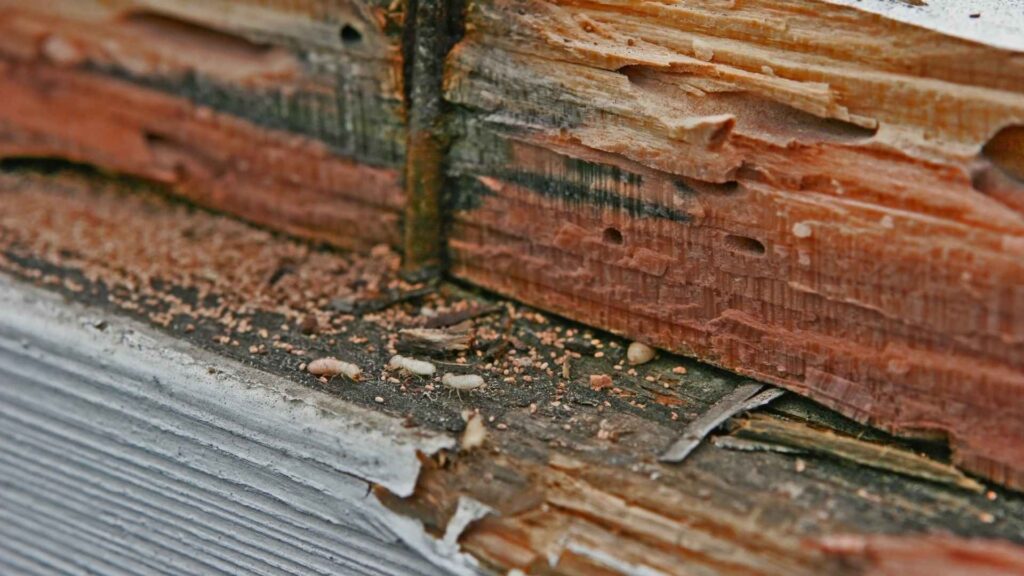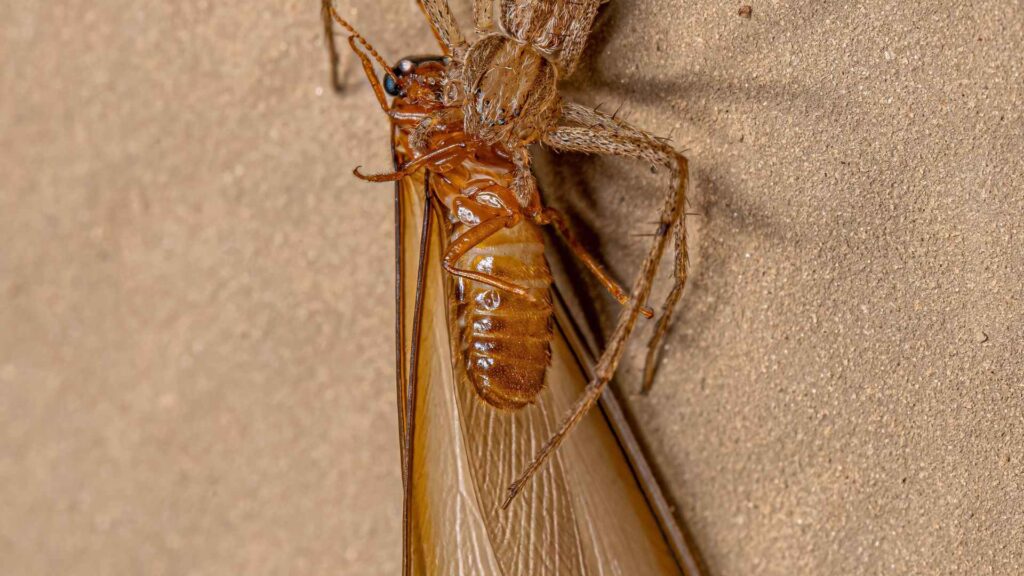Table Of Content
ToggleIn the intricate web of life that exists within our homes and gardens, a fascinating predator-prey dynamic unfolds between two seemingly unlikely foes: spiders and termites.
While spiders are renowned for their pest-control prowess, a common question arises – do they extend their eight-legged service to include termite elimination?
As a pest control expert, I can shed light on this intriguing topic. This article will delve into the dietary habits of both spiders and termites, analyze their hunting strategies, and ultimately reveal whether spiders consider termites a desirable snack.
So, if you’ve ever wondered if those house spiders are secretly battling a hidden termite threat, keep reading to discover the truth!

Spiders are like the ultimate carnivores of the insect world. Here’s a quick breakdown of their eating habits:
Contact us for immediate termite inspection and solutions.

Termites might seem like creepy crawlies too, but their dietary preferences are quite different from spiders. Here’s what makes them tick:
The answer is yes, spiders can and will include termites in their diet, especially if the opportunity arises. Their exceptional hunting skills allow them to detect prey through vibrations and subtle movements. If a termite wanders too close to a spider’s web or hunting ground, it becomes a potential meal.
Studies have even documented specific spider species, like trapdoor spiders, strategically positioning their burrows near termite colonies for easy access to this protein-rich snack.
Schedule a termite assessment with our experts today.

The likelihood of a spider chowing down on a termite depends on several factors. Here’s a breakdown of these influences:
In conclusion, spiders can and do eat termites, but it’s not always their primary target. As a pest control expert, I can assure you that while spiders might offer some level of natural termite control, they shouldn’t be relied upon solely to protect your home.
The relationship between spiders and termites highlights the fascinating nuances of predator-prey dynamics in the natural world. While spiders often emerge victorious, the availability of other prey and environmental factors can influence this complex dance between hunter and hunted.
Some species of spiders that commonly consume termites include cellar spiders (Pholcidae), jumping spiders (Salticidae), and wolf spiders (Lycosidae). These spiders are known for their diverse hunting strategies and may opportunistically feed on termites when available.
One of the termite’s biggest enemies in nature is ants, particularly species like the Argentine ant (Linepithema humile) and the red imported fire ant (Solenopsis invicta). These ants are voracious predators of termites, often raiding termite colonies for food.
Yes, termites have several natural predators, including certain species of birds such as woodpeckers and swallows that feed on termites. Additionally, reptiles like lizards and amphibians such as frogs are known to prey on termites when they encounter them.
Several insects are known to prey on termites, including beetles like the ground beetle (Carabidae) and the predatory rove beetle (Staphylinidae). In addition to beetles, some species of mantises and assassin bugs are also predators of termites, contributing to the natural checks and balances in termite populations.
Your trusted pest control experts in Southern California. Keeping your neighborhood pest-free!